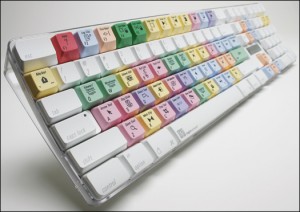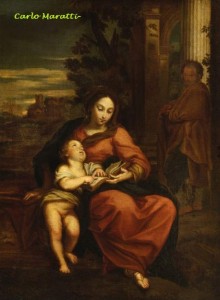Office of Instructional Technology (OIT) Workshops

BRONX COMMUNITY COLLEGE/Office of Instructional Technology (OIT) Workshops for the Week of March 7th*To attend Blackboard workshops, participants must have working BCC email and CUNY Portal accounts. If you don’t have a Portal account go to (http://portal.cuny.edu/portal/site/cuny/index.jsp) and register.
Date: Monday, March 7
Title: Blackboard Level 2
Location: Virtual online session (Login instructions will be emailed to participants)
Time: 12-1:30 pm
Instructor: Albert Robinson
Description: This workshop covers selected advanced features of Blackboard.
Topics will include: adding tests to a content area, exploring the Grade Center, setting up the Grade Center to suit instructional needs, customizing display and grading options, and grading test and assignment submissions.
If you would like to attend this workshop, please register online at
https://www.bcc.cuny.edu/InstructionalTechnology/workshops/?courseid=128&Month=3&Year=2011
Date: Tuesday, March 8
Title: Introduction to ePortfolios
Location: Center for Teaching Excellence (CTE) Philosophy Hall
Time: 3-5 pm
Instructors: Albert Robinson
Description: Electronic Portfolios, or ePortfolios, allow students and faculty to collect and display their work in multiple forms to multiple audiences. This workshop will introduce participants to BCC’s ePortfolio software platform, and will review the advantages of bringing ePortfolios into courses and programs. All participants will receive an account on the ePortfolio system.
If you would like to attend this workshop, please register online at
https://www.bcc.cuny.edu/InstructionalTechnology/workshops/?courseid=129&Month=3&Year=2011
Date: Wednesday, March 9
Title: Webex
Location: Virtual online session (Login instructions will be emailed to participants)
Time: 12-1:30 pm
Instructor: Albert Robinson
Description: What is Webex? Webex combines real-time desktop sharing with phone conferencing so everyone sees the same thing while you talk. It’s far more productive than emailing files and struggling to get everyone on the same page over the phone. Meeting can also be recorded and shared with colleagues.
What can Webex be used for? Virtual Meetings and Small Group training sessions (25 participants max)
If you would like to attend this workshop, please register online at
https://www.bcc.cuny.edu/InstructionalTechnology/workshops/?courseid=130&Month=3&Year=2011
Date: Thursday, March 10
Title: Increasing Collaboration and Interactivity in your Online Class
Location: Center for Teaching Excellence (CTE) Philosophy Hall
Time: 12-2 pm
Description: A key goal is to increase interactivity. This workshop will allow you to determine the degree of collaborative activities present in your course and will provide resources and strategies on how to create successful interactions between students, course content and instruction.
If you would like to attend this workshop, please register online at
https://www.bcc.cuny.edu/InstructionalTechnology/workshops/?courseid=131&Month=3&Year=2011
To see the full list of all the workshops, go to https://www.bcc.cuny.edu/InstructionalTechnology/workshops/
If you have any questions about the OIT workshops, please contact Albert Robinson at: albert.robinson@bcc.cuny.edu or 718-289-5100 ext 3063
Office Hours: Monday – Friday 9:00 am-5:00 pm
http://www.bcc.cuny.edu/InformationTechnology/?page=faqFacultyStaff
FAQs – Students
http://www.bcc.cuny.edu/InformationTechnology/?page=FAQ_Students


